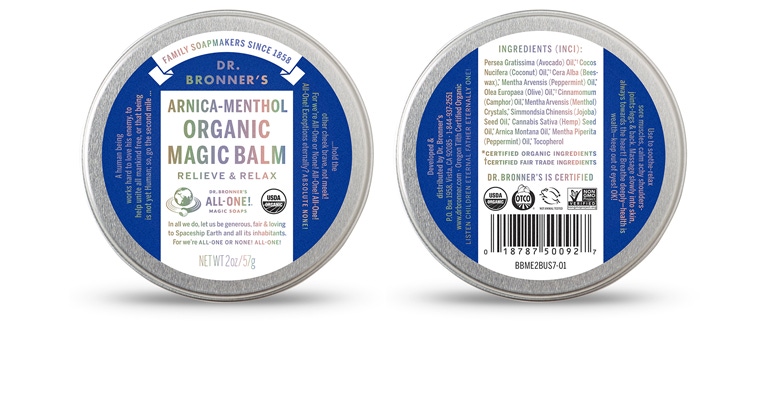How natural beauty brands are fighting climate change
The next generation of eco-friendly beauty is here, and these two forward-thinking companies are leading the way with regenerative farming practices and climate-friendly intiaitives.

Today, "regenerative agriculture" is a prevalent buzzword in earth-friendly food production—but it’s also making its way into beauty products, with companies like Dr. Bronner’s and Eminence Organic Skin Care focusing on their connection with the land and the people growing their ingredients. These manufacturers champion biodynamic agriculture, a holistic practice that treats the farm as a living organism. Here’s what you should know about the next generation of eco-conscious beauty companies.
Redefining clean
"The list of ingredients that body care companies use is so horrendous, and we are willing to put stuff on our skin as long as we think it’s going to be effective," says Elizabeth Candelario, managing director of biodynamic certifier Demeter USA. As a result, the first wave of "clean beauty" products were differentiated by the ingredients they didn’t contain; in recent years, eco-aware companies have eliminated the harsh synthetics prevalent in lotions, shampoos, soaps and more.
Granted, this alone can positively affect our environment (for example, removing synthetic beads from body scrubs or harsh surfactants from body washes, both of which enter our water system, is no doubt a planet-friendly step). But the team at Demeter USA recognized the need to laud companies going well beyond that—those invested in doing more for the land and growing ingredients using regenerative practices that support the environment. Demeter offers 16 processing standards, including one specifically for personal care products—which may be the most challenging to meet, considering the nature of manufacturing personal care products, according to Candelario.
For this reason, biodynamic beauty is growing much slower than food, but we are starting to see more and more "cutting edge, artisanal body care brands interested in developing biodynamic," says Candelario.
Finding the beauty in soil
Although many beauty companies are shifting to "plant-based," that doesn’t necessarily mean those plant ingredients were grown using environmentally sound practices. Formulating with organic or biodynamic ingredients ensures the product is clean and pro-planet. As with organic, biodynamic farming prohibits chemical pesticides and synthetic fertilizers; it also requires various other seasonal practices that keep the soil healthy and focus on carbon sequestration with the hope of mitigating climate change.
For the leaders of Eminence, it was only natural to embrace biodynamics, considering it’s at the root of their brand’s origins. "Eminence’s history reaches back over half a century, when skin care ingredients were grown and sourced from local, organic farms," says Boldijarre Koronczay, president of Eminence. "In Hungary, 'organic' isn’t a unique way of farming or life … it just is the way of life."
Connecting with ingredients
Dr. Bronner’s also takes a global perspective on cleaning up beauty, by employing their "ability to pinpoint exactly what they are doing in the supply chain, purchase farms and then actively install regenerative practices that haven’t been in these countries before," according to Lara Jackle Dickinson, codirector of OSC², a northern California–based organization dedicated to tackling business and industry challenges related to sustainability.
An early pioneer of the organic personal care industry, Dr. Bronner’s believes that biodynamic is the next frontier. For David Bronner, "cosmic engagement officer" at Dr. Bronner’s, environmental responsibility starts with formulating products in compliance with USDA NOP criteria, but it doesn’t end there. Consumers should look for companies that "engage with farmers directly, or partner with supplier partners who do, to implement best organic and regenerative practices, like cover cropping and using compost to build soil health and organic matter," says Bronner.
The company's latest efforts are focused on developing regenerative agriculture models worldwide through partnerships with farms in Ghana, India, Samoa and Sri Lanka. The goal: to improve the livelihoods of people within those countries, while simultaneously regenerating soil and bringing us amazing, clean beauty products: Can you say win-win … win?
About the Author(s)
You May Also Like




